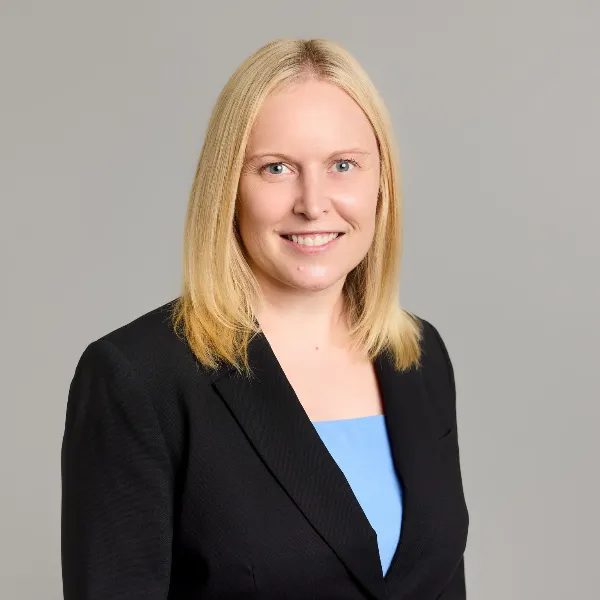Financial
Roadmap
A clear, personalised path to your financial goals.

Mortgage interest rates have been a hot topic of conversation for many years. We’ve been experiencing some of the lowest figures ever seen and the Australian property market has continued to soar, despite the economic woes of the global coronavirus pandemic.
With that in mind, we spoke with Luke Taliana. Luke is a member of Senior Adviser Anthony Dhillon’s professional network. He is a Finance Specialist and Mortgage Broker from CCA Mortgage Solutions.
In this article, he discusses the difference between fixed and variable loans and highlights key elements to consider when making your mortgage lending decisions.
When you select a fixed interest rate loan, you are locking yourself into a contract for a specific term.
You secure the rate for the length of the term and it enables you to know exactly what you will be required to pay during that set amount of time. Luke explains,
“You can enter a fixed loan contract for anywhere from one, two or three years, even up to ten years with some lenders. The fixed term guarantees your interest rate is locked for the duration of the term. For some people, this can offer comfort and security, because you know what your repayments will be and you can budget accordingly.
However, one of the downsides to a fixed rate loan is that you cannot break the contract without incurring fees. For example, if your circumstances change and you want to sell the property, if your relationship status changes and you need to break the term, the lender can charge you ‘break fees’.
These fees are calculated via a unique algorithm, which differs from lender to lender, and it means you could be up for a significant sum if you need to exit the contract.”
Fixed interest rates are often promoted by lenders, and in recent years they tend to be slightly lower than the standard variable rate, but Luke does recommend thinking about the entire term of your loan.
“If you lock in a three-year fixed rate today and next week a lender drops another 0.25%, you won’t be able to access the new lower rate and over the term of the fixed period you could end up paying more.
We’ve seen this a lot over the past few years – rates are low, so people lock in for a term, but then the rates keep dropping. No one has a crystal ball to know what will happen in the future, but it is important to think about the current economic situation and get professional independent advice.”
Variable interest rates are just that… variable. They fluctuate throughout the course of the loan and therefore your repayment levels can change. Luke continues,
“With a variable loan, the interest rate can go up or down at any point over the term of the mortgage… but one of the biggest misconceptions is that if the RBA reduces or increases their rate, the variable loan rate will move with it. That just isn’t the case here in Australia.
Basically, lenders have complete discretion to set their variable rate and review it whenever they want. Just because the RBA drops 0.25% doesn’t automatically mean lenders will pass that on. Your lender may pass on zero, or 0.1% or even 0.35% on certain products if it is trying to increase the flow of that type of lending at that point in time.
There really is no set rule to variable rate changes… essentially there is a standard variable rate and lenders offer discounts off that rate, depending on their current lending ability. If they want to encourage more lending, they will discount, if they want to slow down the lending activity, they remove the discount.
If you have a variable loan sitting at a specific rate, you won’t necessarily receive a new discount automatically… as mentioned, a lot of lenders use this to bring in new business. Understandably, this makes existing clients upset, so one advantage of having a mortgage broker is that they should be regularly reviewing your rates with your lender for you.
Most lenders will match rates for their existing clients, so you can contact your lender and negotiate with them, but a broker should include this as part of their service for you, making sure you are getting the best rate you can.”
In addition to assessing which type of loan suits your circumstances, you also need to consider some of the extra functionality you might require from your loan. Will you want to re-draw from the loan or will you need an offset account? The answers to these questions could influence your decision. Luke highlights the importance of these other considerations.
“One thing you should think about is whether you will need to access a re-draw facility. Unfortunately, most lenders won’t allow you to re-draw on your loan while you’re in a fixed term. If you don’t set this up before you fix your loan, you won’t be able to utilise your money without breaking the loan contract… and potentially incurring break fees.
Plus, the majority of lenders also don’t allow you to have an offset account during the fixed rate period, either. If these services are something you would need, then we usually recommend using a split loan. This is part variable and part fixed. You still have the functionality that you require – the offset account or ability to re-draw against your variable loan, but you also fix a portion of the loan that you don’t think you will make extra repayments on during the period you elect.”
It can be highly time consuming trying to find the best mortgage available – comparing lenders, fees and the ever-changing rates…. not to mention going through various steps to make sure you have all the relevant documentation required to submit a loan application.
Seeking professional advice can help streamline the process. Luke says,
“It can be helpful to use a broker… they should have the most up to date information on hand and access to many different lenders. They will also be able to review your personal finances and make recommendations based on that.
After COVID, many lenders are more cautious about certain types of income and they require more and more documentation… a good broker should make sure that your application fits with the lender before they submit – there’s no point going after the best rate on offer if they aren’t going to approve your loan. It’s about finding the right loan for you.”
If you’d like to find out more or discuss your personal financial situation, please contact our team today. Read more Financial Planning articles.
Every client journey begins with a conversation. We look closely at where you are now, what matters to you, and what’s possible. Then we structure our advice to match.
A clear, personalised path to your financial goals.
Proactive strategies to maximise your tax savings.
Tailored plans aligned with your goals and risk profile.
Regular guidance to keep your plan on track.
Early retirement and working professional
When Tim received an overseas medical settlement, he and Adam had just 14 days left in a 90-day window. They needed clear guidance, fast. A referral led them to First Financial.
“We’re in totally different life stages, but First Financial built a strategy that supports us both. From urgent legal steps to ethical investing, they handled every detail with calm, care, and real expertise. It’s financial freedom without compromise, and we couldn’t have done it without them.”

Newly retired
As retirement neared, Larry and Virginia were ready to enjoy travel, family, and freedom, without uncertainty. A friend recommended First Financial, and from the first meeting, they had a clear plan, a safety net, and people they trusted.
“We’ve travelled the world, Europe, Sri Lanka, Vietnam, without once stressing about the money. They made everything feel simple and gave us the confidence to live well. We feel secure because we know exactly where we stand, and that peace of mind means everything.”

Retired
Jan's husband managed the finances until entering aged care. Jan gradually stepped into the financial picture with First Financial’s support.
“The money just comes in. I don’t have to think about it. And I know they’re always there. They’ve always been there in the background, just quietly making things work.”

Retired widow
Lyn stepped into financial management for the first time after her husband's passing. With patience and care, First Financial supported her through grief, learning, and empowerment.
“After my husband passed, I was completely unsure where to start. First Financial gave me the space to learn, to ask questions, to grow confident. They drew a diagram that I still have. And now, I sleep well at night knowing I’ve got someone in my corner.”

Retired and semi-retired
Referred by friends who were helped through aged care, Craig sought secure financial guidance after inheriting funds.
“We feel very secure with First Financial, the income just comes in, and we know everything is being looked after. It’s not just safe, it’s smart. We’ve recommended them to others because we genuinely believe in the team.”

Retired business owner
After decades of running a successful pharmacy, John sought financial guidance to simplify decision-making and support long-term planning.
“I feel genuinely supported by First Financial. I can ask anything, and there’s no pressure, just clear advice and real care. The money’s growing, I’m not stressed about it, and I feel completely at ease for the first time. I don’t miss work, but I’d miss the support I get from First Financial.”









You can use the form below to make a general or initial enquiry.
You can also book a 15-minute call with an adviser by clicking the blue button below.
You can use the form on the right to make a general or initial enquiry.
You can also book a 15-minute call with an adviser by clicking the blue button below.
Fill in your details and briefly let us know how we can help.
We’ll reach out to schedule a time that suits you.
Enjoy an obligation-free initial meeting to discuss your goals and explore how we can guide you toward financial confidence.
Let’s start the conversation.
We look forward to hearing from you!
Level 9, 90 Collins Street,
Melbourne, VIC, 3000
Office Hours
Mon – Fri | 9:00 am – 5:00 pm